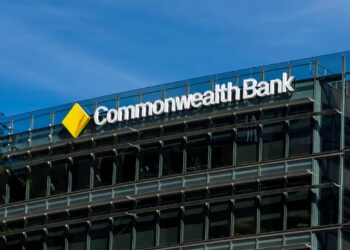Last week, Treasurer Jim Chalmers announced his intention to appoint the next governor of the Reserve Bank of Australia next month, in anticipation of Philip Lowe’s current term expiring in September.
The Treasurer revealed that he is currently engaging in consultations with his cabinet colleagues to reach a final decision in “the coming weeks”.
Although Mr Chalmers remained tight-lipped about the government’s stance on Dr Lowe, considering, particularly several recent mishaps, there have been suggestions that certain Labor backbenchers are advocating for his replacement.
Speaking to InvestorDaily, AMP’s chief economist Shane Oliver said he thinks it would be a mistake to replace Dr Lowe.
While assessing that his suggested replacements are all adequately qualified, Dr Oliver said the current inflationary environment necessitates a level of consistency.
“The suggested replacements such as Michele Bullock or the heads of finance and Treasury would be imminently qualified to be RBA governor, but we are halfway through the inflation-fighting war, and changing the RBA governor now would not be optimal in terms of maintaining inflation-fighting credentials which could make it harder to get inflation back down,” Dr Oliver explained.
Moreover, Dr Oliver voiced concerns about the possibility that a change, in the current setting, could undermine the independence of the bank.
“Changing governor Lowe might also be interpreted by many as a form of political interference in the RBA — which may also result in borrowing costs for Australia than would otherwise be the case,” he judged.
The Treasurer has been deliberate in all of his communications in emphasising the distinction between the decision-making process of the RBA and the role of the government.
Readily referring to the RBA as “independent”, Mr Chalmers has also, on several occasions, emphasised Dr Lowe’s complete autonomy, with Dr Lowe himself intervening in February to reassure the public that he has not received any pressure from the Treasurer.
The Treasurer has, however, talked extensively about his intentions to safeguard “the respect and reputation” of the RBA, specifically following the release of the findings of a review into the central bank, which was initiated in July 2022.
But many have argued that previously mentioned mishaps by the governor have threatened to undermine that respect and reputation, particularly among the general public.
The first of these includes Dr Lowe’s assurances during the pandemic that there would be no rate increases until 2024 — assurances that are now having serious consequences.
Namely, without much warning, the RBA has since May last year hiked rates by 400 basis points, inflicting pain on many borrowers and causing widespread outrage.
According to UTS chief economist Tim Harcourt, if the government had intended to retain Dr Lowe in his position beyond September, it would have likely intervened to shield him from the negative rhetoric circulating among the public.
“Him being reappointed would be now the sort of dark horse scenario given some of the public criticism that the government really hasn’t reigned in. And I don’t think why you’d subject the governor to that sort of treatment if you weren’t going to think about someone else,” Mr Harcourt told ABC Radio on Friday.
Mr Lowe’s second mishap included his attendance at a private lunch with major bank bond traders in February, which saw him skip the customary public address following the first RBA board meeting of the year, a tradition that’s been upheld since 2017.
At the time, Dr Lowe said that his decision to attend the private lunch was motivated by a concern that he had been “talking too much” — a direct reference to the criticism he had received regarding his reassurances during the pandemic. However, public apprehension rose as questionable bond activity coincided with the event, leading to fears that sensitive information was shared among the attendees.
But while acknowledging the mistakes Dr Lowe has made, Dr Oliver still believes he should be reappointed.
“Yes, the RBA under governor Lowe has made some mistakes in recent years but so too have other policymakers in Australia and globally, the times have been extraordinary and the RBA has played a role in achieving a near 50-year low in unemployment,” he explained.
“Other central banks have been even more aggressive in raising interest rates than the RBA has,” Dr Oliver said.
Similarly, Warren Hogan, economic adviser at Judo Bank, told ABC Radio that finding a successor with a potential recession due later this year is far from a straightforward task.
“The problem is that this is probably the most difficult time for monetary policy markets, and that raises the issue of who would want the job and are they up to it,” Mr Hogan said.
He added that the absence of leaked information regarding the prospective governor indicates the government is facing challenges in identifying the ideal candidate for the position.
Faced with questions regarding his future earlier this year, Dr Lowe hinted that he would not lose sleep over the government’s decision.
“It’s entirely up to the government whether I continue to serve in this role after September. If I was asked to continue, I would. If I’m not asked to continue, I will find another way to contribute to Australian society,” Dr Lowe said in February.
Dr Lowe has been employed at the RBA for over four decades. However, as the government works its way through the review and its 51 recommendations — which it accepted in principle in April — the question remains whether there is a place for him in the new look RBA the government has envisioned.







